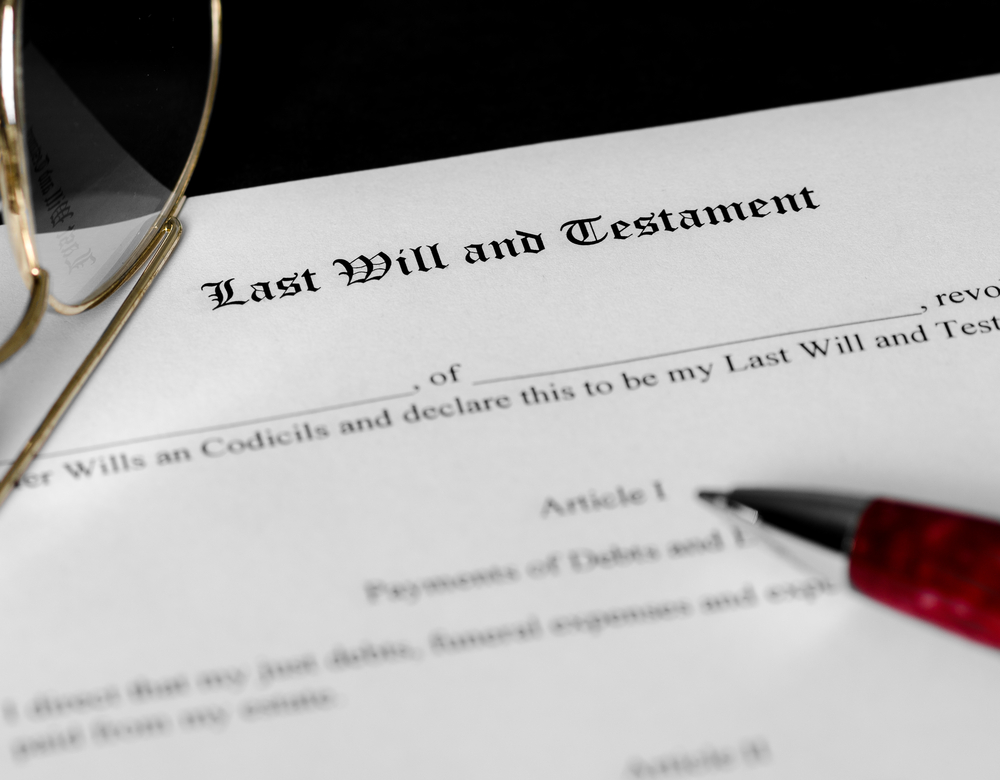
Executor duties in Western Australia: A practical guide
Summary:
- An executor carries out the wishes in a Will and manages the estate after someone dies.
- In WA, the role starts immediately and includes legal duties like applying for probate and distributing assets.
- Executors must locate the Will, arrange the funeral, secure assets, and follow the Will carefully.
- Mistakes like distributing too early or failing to communicate can lead to personal liability.
- If there’s no Will, the estate is handled under WA’s intestacy laws (often causing complications).
Being named as an executor in a Will is both an honour and a responsibility. It means someone trusted you to carry out their final wishes and manage their affairs after they’ve gone. But it can also feel overwhelming — especially if you’re navigating grief, family dynamics, or legal paperwork for the first time.
In Western Australia, the role of an executor can be intricate and emotionally demanding. If you’ve been appointed in a Will, are planning your own estate, or simply want to understand the role, this guide is for you. We’ll walk you through the key duties, decisions, and steps with clarity and confidence.
What is the role of an executor of a Will?
An executor is the person nominated in a Will to carry out the deceased’s final wishes and manage their estate after death. It’s a legal role with serious responsibilities — and one that begins the moment someone passes away.
In Western Australia, the role of an executor is governed by legislation including the Administration Act 1903 (WA) and the Trustees Act 1962 (WA). These laws set out how an estate must be managed, how assets are to be distributed, and what duties fall to the executor.
Key duties of an executor at a glance
- Locate the Will
- Arrange the funeral
- Secure the estate and any valuables
- Apply for probate
- Identify and value all assets and liabilities
- Pay outstanding debts, taxes, and expenses
- Distribute assets to beneficiaries in line with the Will
- Keep clear records of all actions and decisions
Executors are expected to act with honesty, impartiality and care. This is known as a fiduciary duty, and breaching it can lead to personal liability if something goes wrong.
What should an executor do first after someone dies?
If you’ve been named as an executor, your role begins the moment the person passes away. It can be a confronting time (especially if you were close to the deceased), but knowing what to do in those first days can help bring structure and reassurance.
1. Locate the Will
Try to find the original signed copy of the Will as soon as possible. It might be stored at the deceased’s home, with their solicitor, or in a safe deposit box. The Will confirms your appointment as executor and outlines the person’s wishes.
2. Arrange the funeral
The executor is usually responsible for organising the funeral, even before probate is granted. If the Will includes any wishes about burial or cremation, these should be followed where possible. Funeral costs are generally paid from the estate once funds are available.
In most cases, the funeral director will also register the death with the WA Registry of Births, Deaths and Marriages and apply for the death certificate. The certificate is a key document the executor may need to access later for probate and estate administration.
3. Secure the estate and any valuables
As executor, one of your first legal duties is to safeguard the deceased’s assets. That might mean securing the home, changing the locks, insuring property, or freezing bank accounts to prevent unauthorised access.
This step is about protecting the estate — not just for now, but for every beneficiary entitled to a share of it later.
How do you apply for probate in WA?
Before an executor can legally manage or distribute an estate, they often need to apply for a Grant of Probate. This is a formal process through the Supreme Court of Western Australia that confirms the Will is valid and gives the executor legal authority to act.
Not every estate requires probate (it usually depends on the size and complexity of the assets). For example, if the deceased owned real estate in their name alone, or had significant funds in a bank account, probate will likely be needed. In smaller estates or those with jointly held assets, it may not be required.
What’s involved in the probate process?
To apply for probate, you’ll need to:
- Complete the relevant forms through the Supreme Court of WA
- Prepare an affidavit confirming your role as executor and the circumstances of the death
- Attach the original Will and the death certificate
- Provide an inventory of the deceased’s assets and liabilities
- Advertise your intention to apply for probate (as required by the Court)
- Lodge the application and pay the filing fee
If approved, the Court will issue a sealed Grant of Probate, which includes an official copy of the Will. This document allows you to begin administering the estate.
What if there’s no Will?
If there’s no valid Will, the person is considered to have died intestate. Instead of probate, a family member must apply for Letters of Administration, and the estate is distributed according to a legal formula set out in the Administration Act 1903 (WA).
It’s rarely ideal and often causes confusion or conflict.
We’ve explained the full process in our blog What happens if you die without a Will in Australia?.
What does administering an estate involve?
Once probate has been granted, the executor can begin the formal process of administering the estate. This means taking control of the deceased’s assets, paying off any outstanding debts or taxes, and distributing what’s left to the beneficiaries as set out in the Will.
This stage can be straightforward — or surprisingly complex. Some estates involve trusts, business interests, or overseas assets. Others may involve difficult family dynamics or disputes between beneficiaries. Regardless, the executor has a legal duty to act fairly, keep proper records, and ensure the estate is handled with care.
The key steps include
- Collecting assets: This might include closing bank accounts, selling property, and dealing with superannuation or insurance claims.
- Paying debts and liabilities: Executors must ensure that all debts, tax obligations, and estate expenses are paid before distributing any inheritance.
- Communicating with beneficiaries: Keeping beneficiaries informed and managing expectations helps avoid conflict and confusion.
- Distributing the estate: Once everything is accounted for, the executor can transfer assets or funds to the beneficiaries named in the Will.
Every action should be documented. Executors can be personally liable if mistakes are made or if the estate is mishandled — which is why many choose to seek legal advice during this stage.
Common mistakes executors make (and how to avoid them)
1. Distribution assets too early
It’s tempting to “get things sorted” quickly, but distributing the estate before debts, taxes or claims are finalised can backfire. Executors may be personally liable if something is missed.
How to avoid it
Wait until all debts are cleared, tax returns lodged, and the six-month challenge period (after probate is granted) has passed.
2. Failing to communicate
One of the fastest ways to spark tension is silence. When beneficiaries are left in the dark, they start to assume the worst.
How to avoid it
Keep beneficiaries informed at key points, such as when probate is lodged, assets are being sold, or delays arise. Clear and regular updates help build trust and reduce the risk of conflict.
3. Not keeping proper records
Executors must be able to show exactly what came in, what went out, and why. Without records, disputes can arise and you may struggle to defend your actions.
How to avoid it
Keep a running record of all transactions, decisions, correspondence and receipts. Think of it like running a small business for the estate.
4. Acting without advice
Some executors take action without fully understanding their legal responsibilities — or hesitate to get help when things get complicated.
How to avoid it
Understand the scope of your role and don’t guess your way through. If there’s any uncertainty, especially with tax, trusts, or family disputes, seek professional advice early. The estate can usually cover those costs.
Frequently asked questions about executors
Can an executor also be a beneficiary?
Yes. In fact, it’s very common. Many Wills name a spouse, adult child, or close relative as both executor and beneficiary. While it’s legal, it’s important that executors still act impartially and in the best interests of all beneficiaries.
Can I appoint more than one executor?
Yes, you can appoint more than one executor (and many people do). You might choose two adult children, a sibling and a lawyer, or a trusted friend and professional. Co-executors must act jointly, so only appoint multiple people if you believe they can work together effectively.
What happens if the executor doesn’t want the role?
An executor is not legally required to accept the role. If they haven’t started acting in that capacity, they can formally renounce it. If there’s a substitute executor named in the Will, they may step in. Otherwise, the Court may appoint someone else to administer the estate.
Is there a time limit to finish the administration?
There’s no fixed deadline, but the Court generally expects estates to be finalised within 12 months. Delays beyond that may need to be explained, especially if beneficiaries are waiting on their inheritance.
What if the Will is contested?
If someone challenges the Will — usually through a Family Provision Act claim — the executor must pause distribution and manage the legal response. Executors are responsible for protecting the estate and acting in the best interests of all beneficiaries, which can be difficult during a dispute.
This is an area we specialise in. We regularly assist executors in defending a Will and managing the risks that come with inheritance disputes.
Need help with your role as executor?
Administering a deceased estate can be complex, time-consuming, and emotionally draining. From probate to paperwork, tax to distribution, there’s a lot to manage.
Our team of deceased estate administration lawyers in Perth supports executors through every stage of the process. We’ll help you meet your legal obligations, avoid common pitfalls, and give you the confidence to move forward with clarity.
Morgan Solomon is one of the State’s leading succession lawyers. His legal experience spans over 20 years and works with clients to navigate and resolve complex Wills and estate planning and probate, inheritance issues, estate disputes and litigation and business succession. He also has a wealth of experience in general commercial law. Morgan is adept at making clients feel at ease no matter the situation they are in, working with them delivering smart legal strategies and working hard to find fast and equitable outcomes.

